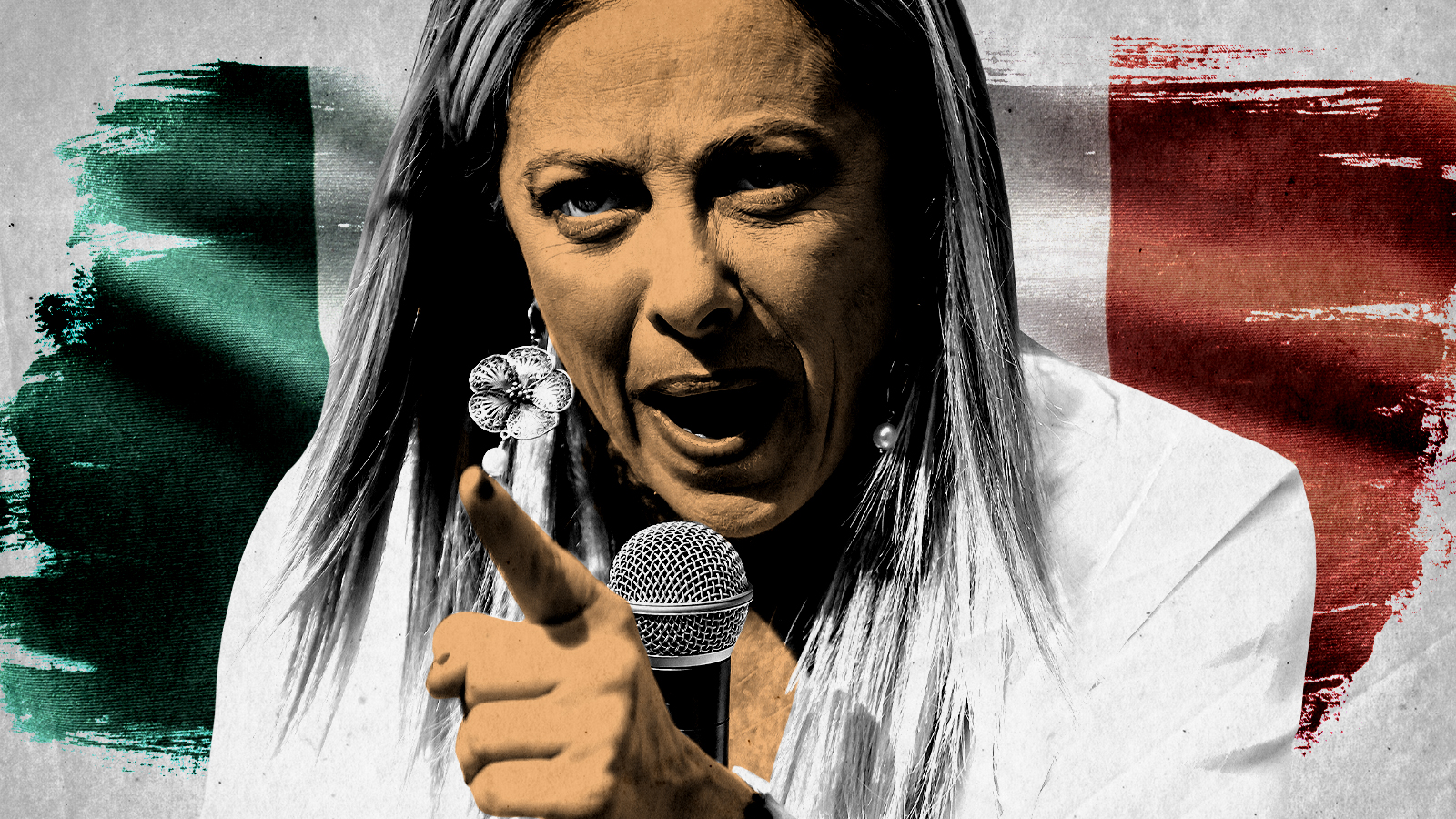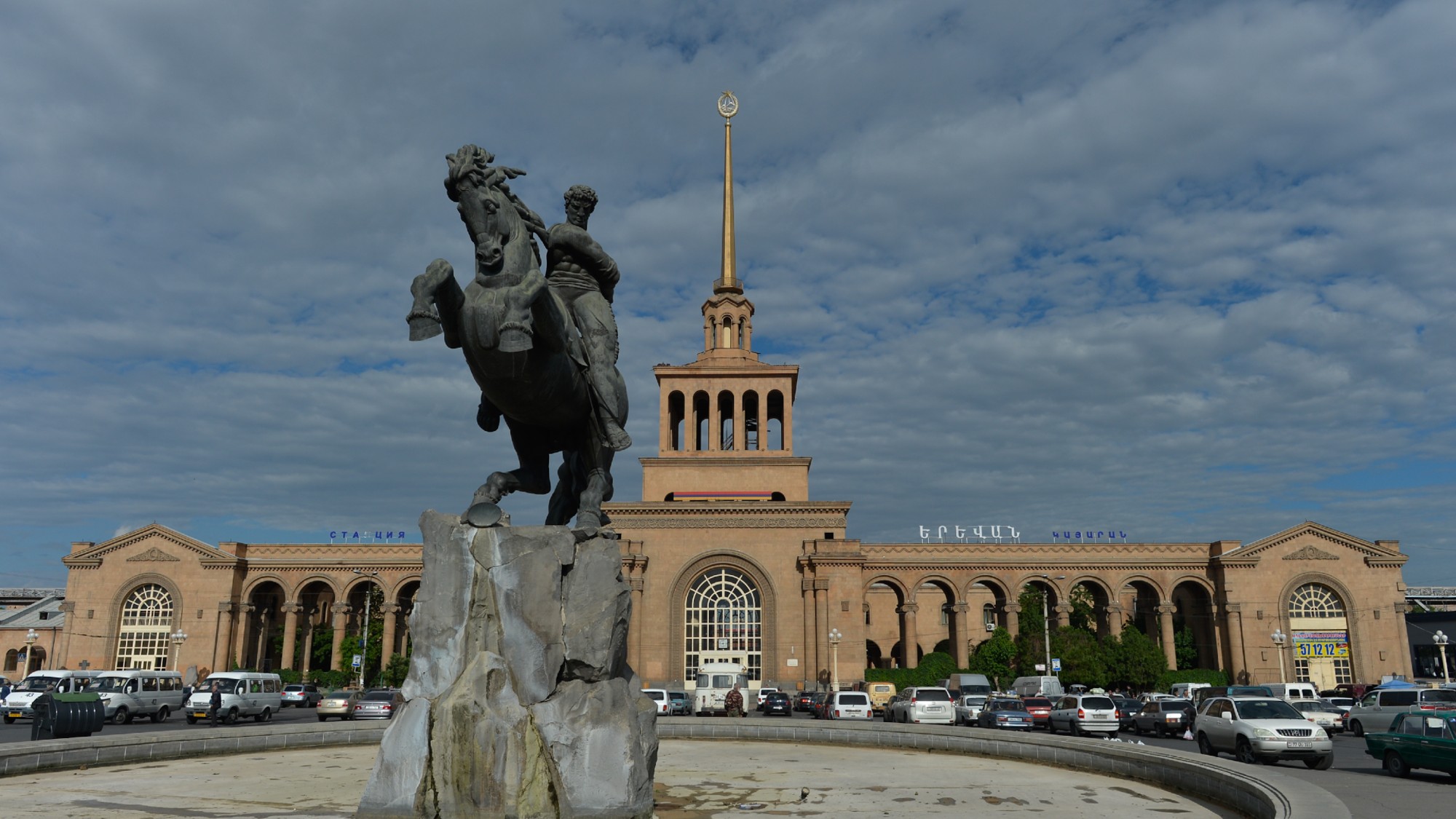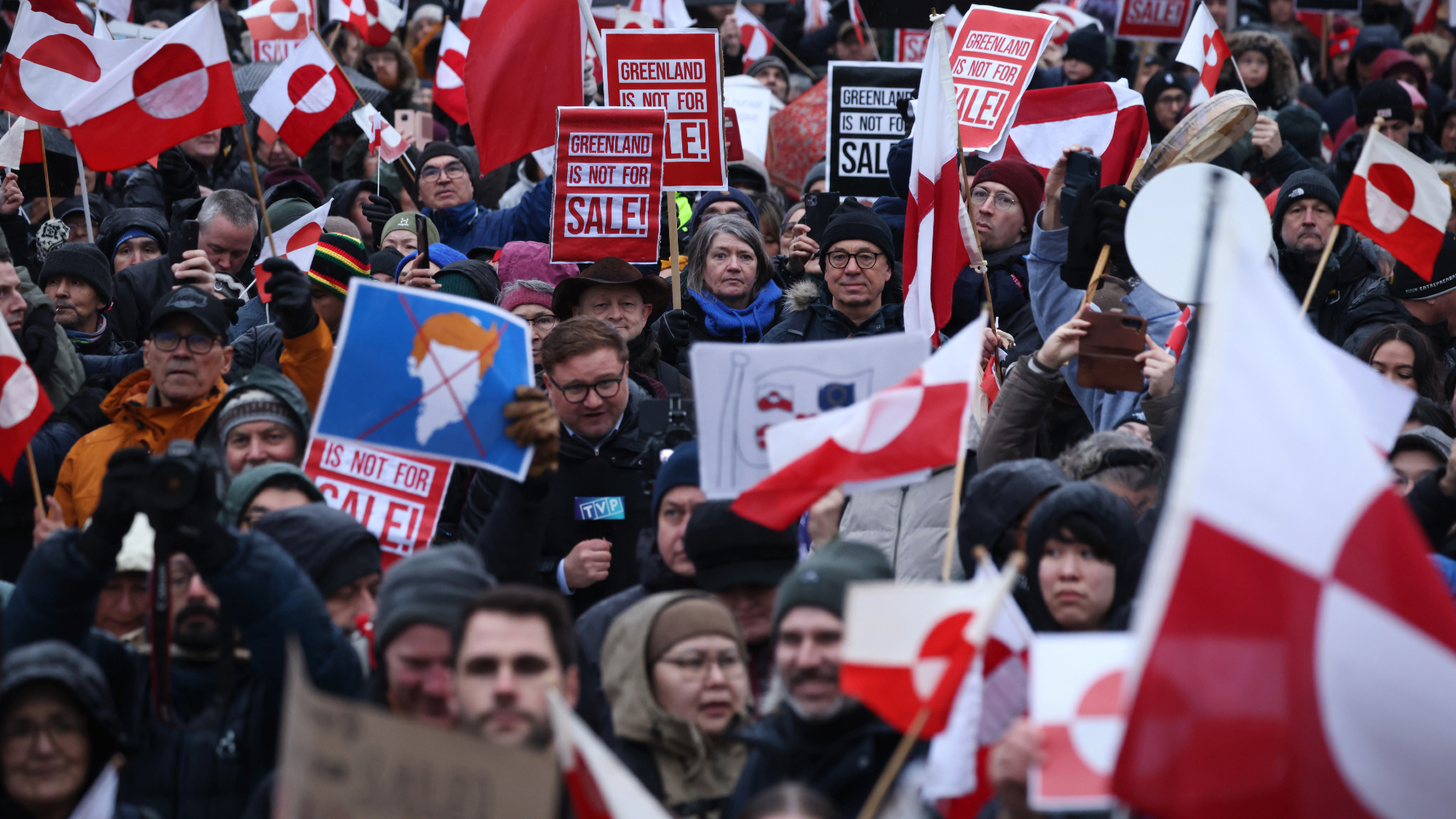Is the far-right victory in Italy cause for concern?
The sharpest opinions on the debate from around the web


A free daily email with the biggest news stories of the day – and the best features from TheWeek.com
You are now subscribed
Your newsletter sign-up was successful
On Sunday, Italy elected far-right conservative Giorgia Meloni as prime minister. It was a historic victory, marking Italy's first woman prime minister — and the rise of the most conservative government since Benito Mussolini.
Meloni co-founded her party, Brothers of Italy, in 2012. The party is a descendant of the neofascist movement called the Italian Social Movement, formed shortly after Mussolini's death, the Los Angeles Times reports. The party has been open about its anti-immigration views and euro-skepticism, according to CNN.
Italy's election closely followed the resignation of former Prime Minister Mario Draghi, a centrist, after he was unable to salvage his coalition. Voter turnout in Sunday's election was historically low, at only 64 percent, Time reports.
The Week
Escape your echo chamber. Get the facts behind the news, plus analysis from multiple perspectives.

Sign up for The Week's Free Newsletters
From our morning news briefing to a weekly Good News Newsletter, get the best of The Week delivered directly to your inbox.
From our morning news briefing to a weekly Good News Newsletter, get the best of The Week delivered directly to your inbox.
Meloni, a 45-year-old mother, has stated that she will "govern for everyone"; however, her ideologies have caused concerns for some. She is openly anti-LGBT, threatening to put same-sex marriage, legalized in 2016, under review. She has also called abortion a "tragedy," adds CNN. The rhetoric has caused concern for women's rights within the country. However, unlike other members of her coalition, Meloni has been staunchly pro-Ukraine.
Is Italy's far-right win something the world should be concerned about?
Wronging the rights
Marginalized groups are concerned that their rights may be in danger, especially women. Giorgia Serughetti, a writer on women's rights at Bicocca University in Milan, stated that Meloni's election is "not a gain at all and, indeed, [is] a possible setback from the point of view of women's rights." The New York Times reports that Italy operates as a rather patriarchal society, with four out of 10 women not working. Meloni has been an advocate for the traditional family, branding herself as a "woman, mother, Italian, Christian" in a speech at a 2019 rally in Rome. Van Badham, a columnist for The Guardian, calls Meloni a "radical ultraconservative who opposes gay adoption," and says that she "fetishizes idealized confections of a 'traditional' family unit she did not herself grow up in."
With Meloni's views against abortion, there is also concern about the right being taken away. Laura Lattuada, an actress in Rome, told the Times, "I am not sure that her conception of protecting women and the family corresponds to the improvement of women's rights." Meloni has also reportedly opposed Italy's "pink quota," which is a means of getting more women into politics and boardrooms, claiming that women shouldn't need government intervention to move up. While supporters agree, many like Ida Maggi of Stati Generali delle Donne, a women's issues association, don't. She remarked, "We have to create the conditions for employment because we are at the bottom of the list in Europe."
A free daily email with the biggest news stories of the day – and the best features from TheWeek.com
Blame the coalition
Many look at Meloni's coalition and party, the Brothers of Italy, as being the real concern of this election. "The massive victory of this bloc will further fuel the media frenzy about the rise of the far right in Europe," argued Cas Mudde, a columnist for The Guardian. Others see Brothers of Italy as further evidence of a rightward swing in Europe that includes Marine Le Pen in France and the Swedish Democrats, another group rooted in neo-fascism, CNN reports.
The Washington Post's editorial board writes in an opinion piece that the Brothers of Italy and Meloni's coalition "include figures who might threaten free and fair elections if given their druthers." The board also notes that it is unlikely that such a resolution would pass in the Italian Parliament. Another concern is that the coalition will push Italy to side with Russia, despite Meloni supporting Ukraine. The Post notes that one of her coalition partners, Matteo Salvini, "opposes sanctions, and the other, former Prime Minister Silvio Berlusconi, is an apologist for the Russian authoritarian."
Blown out of proportion?
Yet others view Meloni's win as an overblown concern. "Tethered to the European Union and constrained by Italy's political system, Ms. Meloni won't have much room to maneuver," points out Mattia Ferraresi in an opinion piece in the Times. With Meloni's support of Ukraine and desire to implement gas price caps in Europe, Ferraresi further argues that Meloni will "occupy a conventional, Europe-friendly position, placating international partners and investors alike."
Despite believing that concerns are overblown, Henry Olsen, a columnist for the Post, argues that "no one should underestimate the populist leader's desire for significant political and economic change." He writes that Italians want change and voted for who they believed would deliver, and therefore, "she must show she can push the EU to give Italy more slack to execute what the nation wants."
Devika Rao has worked as a staff writer at The Week since 2022, covering science, the environment, climate and business. She previously worked as a policy associate for a nonprofit organization advocating for environmental action from a business perspective.
-
 Democrats push for ICE accountability
Democrats push for ICE accountabilityFeature U.S. citizens shot and violently detained by immigration agents testify at Capitol Hill hearing
-
 The price of sporting glory
The price of sporting gloryFeature The Milan-Cortina Winter Olympics kicked off this week. Will Italy regret playing host?
-
 Fulton County: A dress rehearsal for election theft?
Fulton County: A dress rehearsal for election theft?Feature Director of National Intelligence Tulsi Gabbard is Trump's de facto ‘voter fraud’ czar
-
 ‘The West needs people’
‘The West needs people’Instant Opinion Opinion, comment and editorials of the day
-
 ‘Various international actors hope to influence the result for their own benefit’
‘Various international actors hope to influence the result for their own benefit’Instant Opinion Opinion, comment and editorials of the day
-
 How ‘Manchesterism’ could change the UK
How ‘Manchesterism’ could change the UKThe Explainer The idea involves shifting a centralized government to more local powers
-
 Is the American era officially over?
Is the American era officially over?Talking Points Trump’s trade wars and Greenland push are alienating old allies
-
 Trump ties Greenland threat to failed Nobel Peace bid
Trump ties Greenland threat to failed Nobel Peace bidSpeed Read ‘I no longer feel an obligation to think purely of Peace,’ Trump said
-
 The billionaires’ wealth tax: a catastrophe for California?
The billionaires’ wealth tax: a catastrophe for California?Talking Point Peter Thiel and Larry Page preparing to change state residency
-
 Biggest political break-ups and make-ups of 2025
Biggest political break-ups and make-ups of 2025The Explainer From Trump and Musk to the UK and the EU, Christmas wouldn’t be Christmas without a round-up of the year’s relationship drama
-
 Bari Weiss’ ‘60 Minutes’ scandal is about more than one report
Bari Weiss’ ‘60 Minutes’ scandal is about more than one reportIN THE SPOTLIGHT By blocking an approved segment on a controversial prison holding US deportees in El Salvador, the editor-in-chief of CBS News has become the main story
